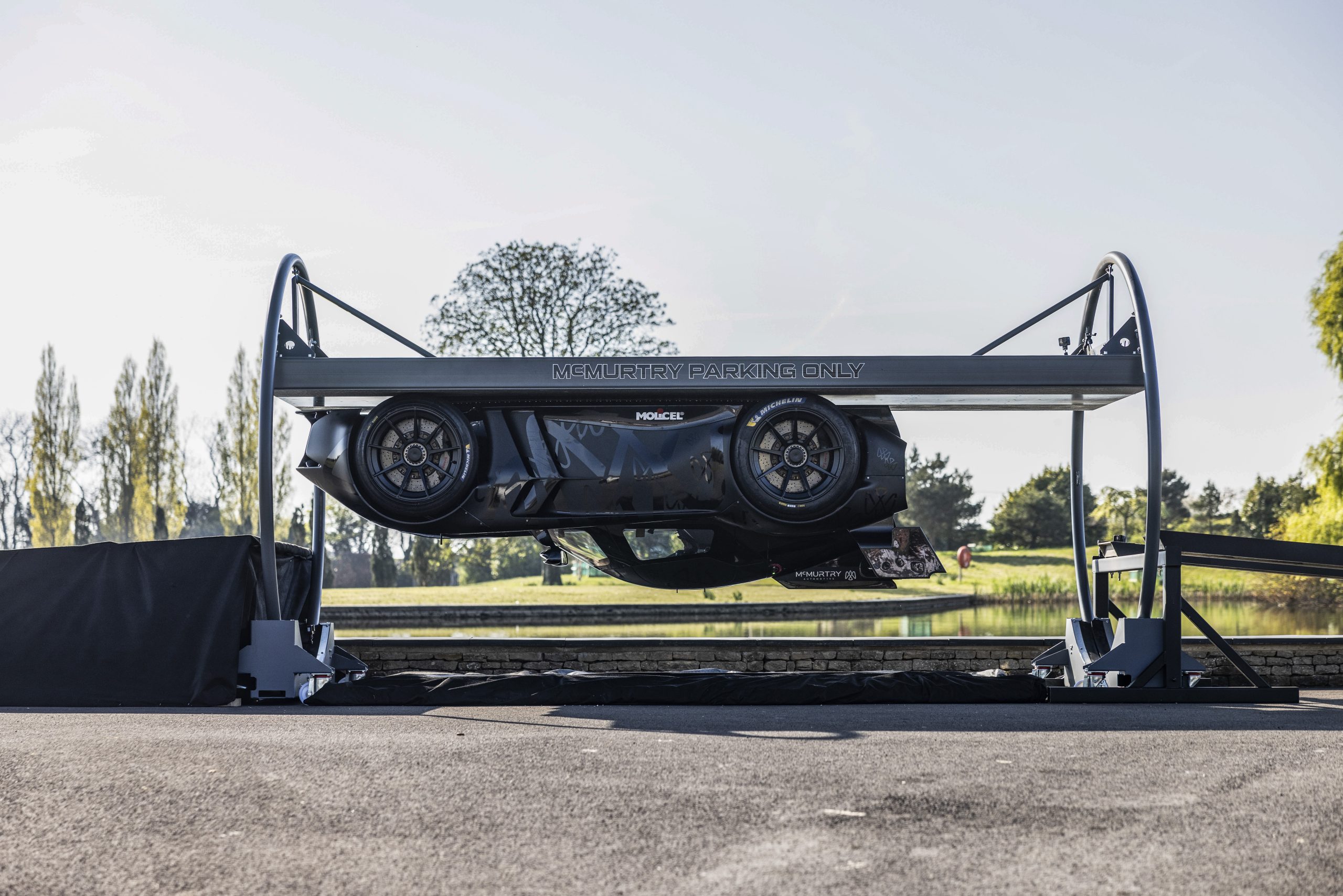Why does my car smell like vinegar?


Vinegar smell in cars can be an unpleasant and alarming experience for car owners. This odor is usually caused by a combination of factors that may include an oil leak or bacterial growth in the AC system. It is crucial to locate and address the source of this problem as it may lead to health issues and further damage to the vehicle.
To begin with, one probable cause of the vinegar smell could be an oil leak. The distinctive aroma of vinegar originating from your car could indicate that motor oil has spilled onto a hot exhaust manifold, leading to evaporation and diffusion into the cabin air. Moreover, bacterial growth on AC system components might contribute to undesirable smells, making it necessary to replace cabin air filters.
In addition, microorganisms flourish in dark, humid environments such as evaporators and air ducts. They tend to proliferate particularly when in contact with moisture sources like rainwater seepage through windshield sealing or water-infiltrated carpeting leading to biofilm accumulation inside tiny condensate drainage lines. This condition can trigger disreputable odors emanating from interior vents.
Lastly, if left unattended, this pungent-smelling atmosphere may cause headaches or respiratory tract infections while driving, not forgetting embarrassment towards passengers accompanying you on rides. Therefore, any hint of unusual fragrances emanating from your automobile should not be overlooked but investigated promptly by an expert mechanic.
Common Causes of Vinegar Smell in Cars
As cars age or undergo numerous repairs, they produce unusual smells that could be challenging to identify. One such odor is the vinegar smell. It is important to identify the source of the odor, as it could indicate certain issues within the car’s system.
Some of the common causes of vinegar smell in cars include:
- Dirty or Clogged Air Conditioner Drain
- Bacterial Growth in Air Conditioning System
- Leaking Batteries and Corroded Electrical Components
Although these issues are common, other factors such as spilled food or drinks, dirty carpets, and mold growth could also be the cause of the vinegar smell in the car. It is essential to diagnose the problem accurately and take appropriate measures to eliminate it promptly.
Unique details about vinegar smell in cars may include the fact that the smell could also come from worn-out brake pads, or the presence of acetone-like smell in the coolant due to a leak in the heating system or radiator.
Interestingly, during World War II, vinegar was used as fuel for cars as gasoline was scarce. The process would entail fermenting vinegar and mixing it with gum or ethanol to create a usable fuel.
Bacterial Growth in the AC System
The unpleasant vinegar smell in cars can often be caused by microbial growth within the air conditioning system. These microbes, typically bacteria and fungi, grow in damp, dark environments such as the AC system’s evaporator core, condenser, and ventilation ducts. They release volatile organic compounds (VOCs) that can produce an acidic odour reminiscent of vinegar.
To prevent bacterial growth within the AC system, it is essential to keep it clean and dry. Regularly change the cabin air filter and have the AC system serviced by a reliable mechanic to remove any accumulated dirt or debris from its components. Furthermore, turning off the AC a few minutes before turning off the engine will allow all residual moisture to evaporate completely.
Interestingly, car dealerships have reported addressing numerous complaints regarding this phenomenon from their customers. One case mentioned involved a customer who left his car parked for several weeks; when he returned, there was an overpowering vinegar smell that even his dogs refused to get inside. In diagnosing this case with his dealership’s mechanics team, they found out that water had entered into the drainage ports in front of the windshield until it flooded everything beneath it during heavy rainfall.
Mold and Mildew Growth
The presence of dampness in cars can often lead to the buildup of an unpleasant and pungent smell, a result of bacterial and fungal growth. These microbes tend to grow most frequently in areas that are prone to moisture accumulation, such as carpets, seat covers, and air conditioning vents. As a result, vinegar-like smells can become quite common in vehicles that have been exposed to rain or damp weather conditions.
To combat mold and mildew growth in cars, it is crucial to maintain the vehicle’s cleanliness regularly. As soon as dampness is detected inside the car, all surfaces and fabrics must be thoroughly dried out. Vacuuming and wiping down all upholstery with antifungal sprays can also prevent future damage. Additionally, using a dehumidifier or moisture absorber can help reduce humidity levels inside the car further.
It is essential not to overlook any signs of mold or mildew growth as they can cause severe respiratory issues for passengers. If left unchecked for long periods, there may be a need to remove affected sections entirely. Instead of tackling this task alone, consulting a professional automotive detailer is recommended.
It has been discovered that mold spores are virtually everywhere in the environment; this fact was revealed by the Centres for Disease Control and Prevention (CDC).
Spoiled Food or Drinks
The foul smell of rotten food or spilled drinks in your car can be quite overwhelming and unpleasant, leaving you with a sense of discomfort. The stale odor could emanate from residue left behind after spills or crumbs between seats, leading to bacterial growth and the production of pungent smells.
To get rid of this nasty stench, you will need to identify the exact source first by searching every nook and corner for any leftover food or drink items on mats, carpets or storage compartments. After cleaning the area thoroughly, use disinfectants or deodorizers to eliminate any remaining odors.
Additionally, it’s important to avoid eating in your car as much as possible and dispose of any trash immediately to prevent further buildup. Neglecting these steps can lead to more serious issues like mold growth or insect infestations.
According to the experts at CarCareReviews.net, “A buildup of bacteria from spilled drinks or food can result in a strong vinegar-like smell in your car.” Regular maintenance through proper cleaning and disinfecting is crucial in keeping your vehicle fresh and free from unpleasant odors.
Effects of Vinegar Smell in Cars
The pungent aroma of vinegar can be overpowering, especially if it lingers in your car. The noticeable ‘Vinegar Smell in Cars’ can create discomfort while driving, and it can impact the overall experience of the passengers. Not only can the scent be nauseating, but it can also be an indicator of underlying issues inside the car. The acidic nature of vinegar can corrode certain components of the car and cause damages. In addition to its unpleasant scent, it can be a cause of concern for the car’s health and longevity.
To rid your car of the unpleasant ‘Sour Smell in Vehicles’, use baking soda or activated charcoal to absorb the odor. Regular maintenance, including air filters or A/C cleaning, can prevent the spread of the scent, reducing the likelihood of vinegar smell. Ensuring that there is no leftover food or liquid in the car can also help prevent this sour smell.
If the smell persists, it can be a sign of a mechanical or electrical issue in your car. It is advisable to take it to a professional mechanic to ascertain the cause of the odor. This can help avoid any possible damages to the car.
Pro Tip: Regular maintenance, including cleaning the interior and having the car serviced, can prevent the buildup of unpleasant scents and bacteria in your car.
Health Risks
An Analysis of the Potential Dangers Associated with Inhaling Vinegar Smell in Cars
Breathing vinegar smell inside the car can lead to health risks because acetic acid, a common ingredient in most vinegars, irritates the eyes, nose, and respiratory tract, causing coughs, headaches, and difficulty breathing.
Additionally, inhalation of vinegar smell while driving for extended periods can affect cognitive function due to prolonged exposure to mild acidic fumes. It may trigger discomfort or irritation which can make concentration difficult.
Notably, reducing the amount of vinegar used or using other cleaning methods like baking soda and lemon juice may lower the severity of these risks.
One way to manage these risks is by ventilating the car with fresh air after cleaning surfaces that come in contact with food or drinks. Use an air purifier dedicated to trapping VOCs like porous activated carbon filters. Replace your air conditioning system’s filter frequently to avoid dirty air circulating across your cabin realm. By doing so on a regular basis, you not only remove germs from your vehicle but also mitigate any potential health concerns caused by excess inhalation of vinegar fumes.
Reduced Resale Value of the Car
The unpleasant scent of vinegar in a car can significantly decrease its potential resale value. This is because potential buyers may associate the smell with poor maintenance or neglect of the interior, leading them to undervalue the vehicle. The reduction in resale value can also be attributed to the negative impact it has on a vehicle’s overall aesthetics.
Moreover, even though the source of the vinegar odor may have been addressed and eliminated, the lingering perception of odor can be difficult to overcome when reselling a car. This often results in reduced offers from potential buyers or extended time spent sitting on a dealership lot.
It’s worth noting that unaddressed odors, including those caused by mildew or smoke, can have an even more significant impact on a car’s resale value than vinegar smells alone. With proper maintenance and upkeep, however, addressing any undesirable smells can help preserve both a car’s condition and its market value.
A true history recounts a story of how an ex-smoker tried selling his car only to over-estimate its actual value due to his own attachment and lack of awareness regarding how cigarette smoke affects vehicles. After several weeks, no one showed interest in purchasing the vehicle at that price range; he lowered it but still couldn’t make any sales until he had thoroughly cleaned out any smoke residue and kept it off from any contact with smokers for some time after that. Eventually, he was able to sell it at a lower price than what he initially expected.
How to Get Rid of Vinegar Smell in Cars
If your car smells like vinegar, it can be quite unpleasant. To get rid of the vinegar smell in your car, follow these simple tips. First, remove all the items from your car and clean the interiors using vinegar and water. Next, use a natural air freshener to deodorize the space. Finally, allow the car to air dry before putting back the items.
- Clean the interiors
- Remove all the items from your car
- Mix equal parts of water and vinegar and dip a clean cloth in it
- Use the cloth to wipe all surfaces of the car interiors, including the seats, dashboard, and carpets
- Use a natural air freshener
- Place an open container of baking soda in the car overnight
- Alternatively, you can use activated charcoal bags or an essential oil diffuser
- These air fresheners will absorb the unpleasant smell and leave a fresh scent
- Air dry before putting back the items
- Leave the car windows open to allow fresh air to circulate
- Ensure that the car is completely dry before returning the items
Additionally, it is recommended to regularly clean your car interiors and use natural air fresheners to avoid any odors from developing.
A study published in the Journal of Environmental Science and Health found that traditional air fresheners, such as aerosols and plug-ins, can emit harmful pollutants. It is therefore important to choose natural alternatives to maintain a healthy and pleasant car environment.
Cleaning the AC System
When dealing with the scent of vinegar, it can be challenging to eradicate it from your vehicle entirely. However, there is a method that can help you clean the air conditioning system in your car and prevent the odor from spreading further.
To clean the air conditioning system, follow these three steps:
- Turn off the engine and open all windows.
- Then, spray an AC system cleaning solution directly into the air intake vents.
- Finally, allow the ventilation system to run for half an hour on high heat while keeping all doors and windows closed.
One way to minimize vinegar odor is by cleaning out your car’s cabin filter regularly. When this filter becomes too dirty or clogged, it may become worse at trapping unpleasant smells. Instead of turning to generic air fresheners, consider using natural products like activated charcoal or baking soda to absorb foul smells inside your car’s interior.
A friend of mine had a similar situation where they wanted to get rid of a smell like vinegar in their car but weren’t sure how. They followed some simple tips online to clean up their AC system with a cleaning solution specifically designed for vehicles. As soon as they finished this process and put new filters in their vehicle’s cabin, they noticed an immediate improvement in reducing unwanted smells inside their car.
Removing Mold and Mildew
Dealing with mold and mildew can be challenging, especially when it comes to cars. These unwelcomed fungal growths can cause an unpleasant odor that is hard to eliminate.
A 4-Step Guide for Removing Fungal Growth in Vehicles:
- Begin by thoroughly cleaning the affected area using a specialized cleaner that targets fungi. Be sure to wear gloves and goggles during the process.
- Next, use a mix of water and white vinegar (1:1 ratio) to rinse the surface while scrubbing with a brush or sponge.
- Dry the area completely by wiping it down with a dry cloth or using an air dryer equipped with hot air blower attachments.
- Finally, use an anti-fungal spray to prevent mold and mildew from coming back.
Additional Tips on Removing Fungal Growth in Vehicles:
- Keeping your car clean and dry is crucial for preventing the growth of fungus. Always remove wet items like umbrellas, towels or damp clothes from the car as soon as possible as they can produce moist conditions ideal for fungi development.
- It’s important to understand that any bit of moisture left behind provides favorable conditions for fungal growth. Therefore, keeping your car in a well-aerated environment will help prevent condensation leading to mold formation in closed spaces like vehicles.
Your car may smell like a dumpster, but at least it’s not a compost heap – here’s how to banish the remnants of that spilled smoothie.
Removing Spoiled Food or Drinks
If you’ve had the unfortunate experience of dealing with spoiled food or drinks in your car, then you know how overwhelming and unpleasant it can be. The pungent smell is not only unpleasant but can linger for days if not addressed promptly.
To get rid of the horrid smell, follow these four simple steps:
- Remove all spoiled food or drink from the car immediately.
- Thoroughly clean and vacuum the affected area.
- Use odor eliminators such as baking soda, vinegar or charcoal and leave them in your car overnight.
- Repeat until the smell is completely gone.
It’s important to note that different methods may work better for different types of smells. For instance, white vinegar is excellent at removing sour milk smells, while baking soda is fantastic at eliminating cigarette smoke odors.
If the above remedies do not work adequately, consider taking your vehicle to a professional detailer who specializes in removing stubborn smells.
Don’t let a persistent odor become a permanent feature of your car; use these steps to get rid of unwanted stenches and enjoy a fresh-smelling ride.
Preventing Vinegar Smell in Cars
To avoid the unpleasant smell of vinegar in your car, there are five simple steps that you can follow. Firstly, make sure to remove any spilled liquids or food debris as soon as possible. Secondly, clean the car seats and mats regularly using an upholstery cleaner. Thirdly, use an air freshener that is specifically designed for cars. Fourthly, place an open container of baking soda in the car to help absorb unwanted odors. Finally, leave the car windows open for ventilation whenever possible.
It’s crucial to note that certain unique factors could contribute to the vinegar odor, such as air conditioning malfunctions or mold growth. If you suspect any of these issues, it may be best to visit a mechanic or car specialist.
A friend once shared an incident of finding a forgotten water bottle under the car seat, leading to an overpowering odor of vinegar that lingered for weeks despite their efforts to eliminate it. It’s always best to double-check for any overlooked items in your car to prevent such situations.
Regular Cleaning and Maintenance
Keeping the interior of your car clean and well-maintained is essential for preventing unwanted odors. Consistent cleaning and upkeep can help ensure that your ride always smells fresh and pleasant. Here are some tips for maintaining cleanliness in your vehicle:
- Regularly vacuuming the carpets and seats to remove dirt, dust, and debris
- Wiping down surfaces with a microfiber cloth to remove any residue or buildup
- Using an air freshener or odor eliminator as needed
- Keeping the windows rolled down or cracked while driving to promote ventilation
- Cleaning up spills immediately to prevent any lingering smells from developing
- Avoiding eating inside the car as much as possible to reduce food-related odors.
In addition to these measures, regularly washing the exterior of your car can also help prevent unwanted smells from seeping inside. By keeping your vehicle clean both inside and out, you can enjoy a fresh-smelling ride every time.
Pro Tip: Consider investing in a small handheld vacuum cleaner specifically designed for use in cars. This can make it easier to quickly clean up any messes or debris without having to lug around a bulky machine or go to a car wash.
Proper Food and Drink Storage
To avoid unwanted odors in the car, appropriate storage of food and drinks while traveling is crucial. Using airtight containers or coolers can maintain freshness, reduce spills, and prevent unpleasant smells that may be difficult to remove.
The following table provides some examples of proper storage options for popular road trip snacks:
| Food/Drink | Proper Storage |
|---|---|
| Sandwiches | Airtight plastic bags or containers |
| Fruits/Veggies | Coolers with ice or refrigeration |
| Chips/Crackers | Sealed containers to prevent moisture exposure |
| Drinks | Cooler with ice or temperature regulating tumblers |
It is also essential to dispose of any trash promptly and efficiently. Keeping the car clean can minimize clutter and chances of attracting insects, which can bring an unpleasant smell.
Additionally, carrying odor-absorbing materials like baking soda, coffee beans, or charcoal sachets in the car can help eliminate any residual smells.
A friend once told me a story about how they left a half-drunk bottle of orange juice in their car’s side pocket for an extended period. On a hot day, when they finally retrieved it, the smell was unbearable. The rotting remains had leaked out all over the pocket and were nearly impossible to remove entirely from the fabric. It serves as a reminder to always check cars for forgotten food and drink items before locking up!
Adequate Ventilation
Sufficient Air Circulation
Airflow is critical to reduce the vinegar smell inside the car. Proper ventilation is crucial to allow air to circulate and remove any lingering odor from the car’s interior. The best way to ensure adequate air circulation is by opening all windows and sunroof if available while driving or parking in an open area.
Switch on the AC While Driving
Air conditioners have a dehumidifying effect, which means they help dry out moisture-laden car interiors, reducing bad odors. Switching on the AC while driving helps lower humidity levels, which can significantly reduce vinegar-like smells.
Use Charcoal Bags
Charcoal bags are natural deodorizers that absorb bad odors from confined spaces such as cars. They’re also budget-friendly and reusable. Place them under seats or hang them inside your car for optimum odor absorption.
Pro Tip:
Regular vacuuming of your car’s upholstery and carpets, along with proper cleaning of floor mats, also goes a long way in removing unpleasant odors from your vehicle interior.
Why does my car smell like vinegar? – Key Takeaways
It appears that a noticeable vinegar-like smell is emanating from your car. This can be due to various reasons, such as mold growth, a clogged AC system, or a leak in the coolant system. It is essential to diagnose and address the reason behind the odor promptly, as it can have adverse health effects on passengers and reduce your car’s value. Regular maintenance and cleaning will help avoid unpleasant smells in the future.
To eliminate odors caused by mold growth or bacteria buildup, clean all surfaces thoroughly and use an HVAC cleaner designed for cars. A clogged AC system can cause smells by preventing the proper flow of air, so it’s necessary to have a professional inspect it regularly. Moreover, a leak in your coolant system could produce a sweet smell similar to vinegar or maple syrup.
If you don’t take care of the source of odors right away when they begin appearing, they could get severe over time. The longer you wait to deal with these issues early on may result in worse situations down the line—leading to both higher repair bills and missed days at work due to illness from inhaling bad air. So take care of those nasty odors quickly before they become much more than just an annoyance.
A friend had ignored her strong car odor for months only addressing it after she had trouble breathing and felt ill after driving for extended periods. It turned out that her coolant was leaking unbeknownst to her causing serious bacterial contamination inside her vehicle!
Why does my car smell like vinegar? – Frequently Asked Questions
Q: Why does my car smell like vinegar?
A: There can be several reasons why your car smells like vinegar, including dirty carpets or upholstery, mold growth, or leaking AC components.
Q: How can I get rid of the vinegar smell in my car?
A: To remove the vinegar smell, you can try using baking soda, vinegar, or air fresheners specifically designed for cars. You may also want to have your AC system checked for leaks and proper function.
Q: Can breathing in the vinegar smell be harmful?
A: Breathing in small amounts of vinegar smell is generally not harmful. However, if the smell is strong or persistent, it may indicate a problem that should be addressed by a professional.
Q: Can vinegar damage car interiors?
A: Vinegar can potentially damage car interiors if used in excess or applied incorrectly. It’s best to consult with a professional before using vinegar or any other cleaning solution on your car.
Q: How can I prevent my car from smelling like vinegar?
A: Regular cleaning and maintenance of your car, especially the AC system, can help prevent vinegar smells from developing. Also, avoid leaving food or wet items in your car for extended periods.











[…] prevent gas smells in cars caused by leaks or charcoal canisters breakdowns, drivers should observe regular maintenance […]
[…] possible reason for the gasoline smell in cars with AC on could be a malfunctioning EVAP system. This system is responsible for capturing and […]